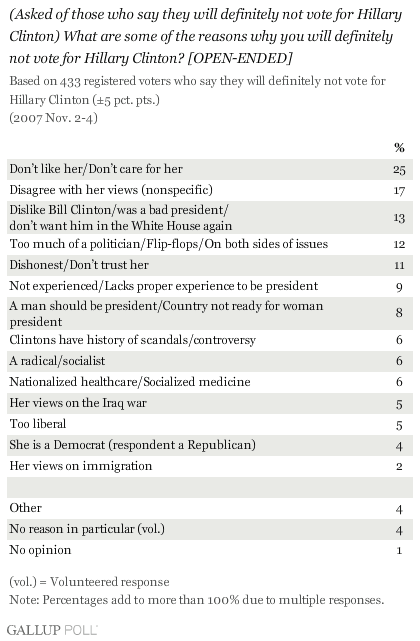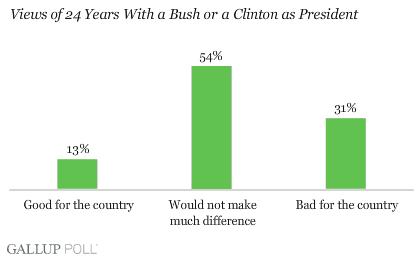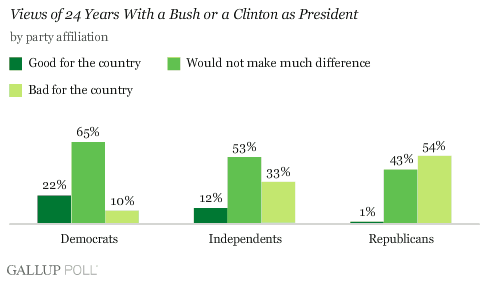
Interesting that her views on the Iraq War rate LOWER than her views on univeral healthcare, a policy most Democratic candidates are pushing...
The most common specific explanation given -- simple dislike of her -- is probably also the most basic (and vague), mentioned by 25% of Clinton nonsupporters. In a related stat, there is some evidence that she has been able to convert voters -- the percentage claiming they would definitely not vote for her now (44%) is seven points lower than in January 2006 (51%). In addition, other candidates (Mitt Romney and Fred Thompson) have even greater numbers of detractors in the poll,
and Clinton's numbers are not appreciably worse than those of Rudy Giuliani, Barack Obama, and John Edwards.The apparent theme of the 2008 election campaign has been Clinton's electability. She does have unusually high unfavorable ratings for a candidate this early in the campaign. However, that might just be due to the fact that she is universally known a year before the election, something most presidential candidates cannot claim.
Clinton's unfavorable ratings and the percentage who say they definitely would not vote for her are not unusual compared to those of presidential candidates near the end of the campaign. So as long as her negatives don't continue to grow,(and most polls show them actually shrinking) she may be as well-positioned to win next November as Obama, Edwards, or the Republican candidate would be.
Is a Bush/Clinton/Bush/Clinton Dynasty a REAL Issue?The poll also asked respondents for their views on the possibility of the continuation of a Bush family-Clinton family White House succession pattern. If Hillary Clinton is elected in 2008, a Bush or a Clinton will have served as president for six consecutive presidential terms or 24 years by the end of Clinton's first term.
A majority thinks a continuation of the Bush-Clinton dynasty in the Oval Office would not make much difference to the country. Those who think it would have a negative impact outnumber those who think it would have a positive impact by more than a 2-to-1 margin (31% to 13%).

Responses to this question are largely driven by one's support for Hillary Clinton for president. A majority of Republicans (most of whom say they definitely would not vote for Clinton) think keeping the Bush-Clinton family succession going is bad for the country (of course they do :) ), whereas
a majority of Democrats (most of whom say they definitely will vote for Clinton or would consider doing so) say it would make little difference to the country. Democrats are twice as likely to say it would be good for the country as to say it would be bad. Most independents have a neutral stance on the issue, but are more likely to say it would be bad rather than good for the country.
